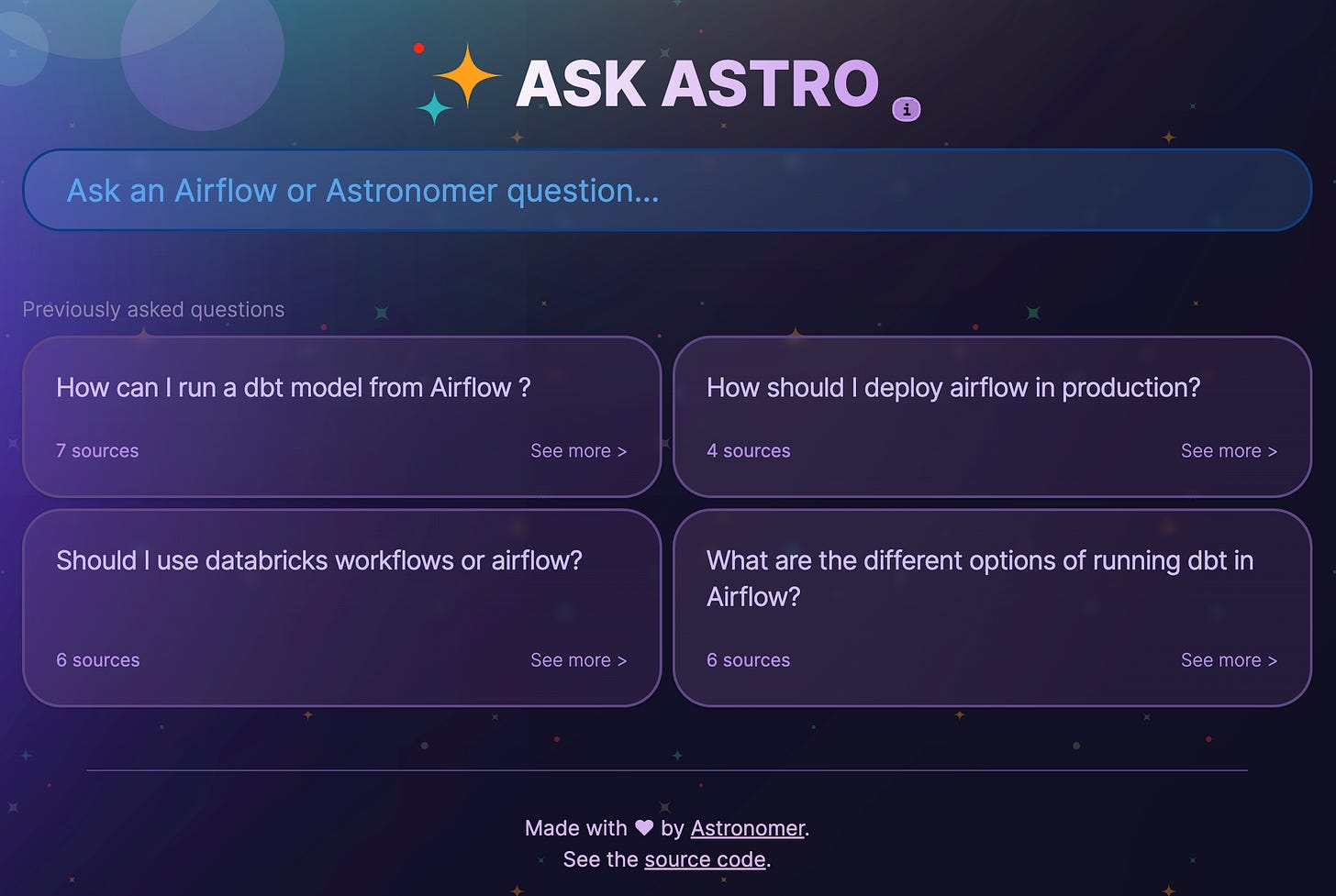In this issue:
News From The ABAP Retirement Villa
I'm a 42 year old geezer. It's strangely common for me to meet ABAP devs older than me.

I think the above is roughly true, at least for the US? Readers, if you have any knowledge, please weigh in. My thoughts below are from the multiverse variant where it is true - so grain of salt, buyer beware, and so on.
There are fewer junior ABAP developers available than needed. Why is that?
SAP R/3 took off in the US in the mid-late 90’s. The experienced folks I know got on the train around that time. It captured people off the street who could claim ABAP knowledge so long as they could spell it. Since then, there’s been steady growth in the US, but not a tidal wave like that. Did an interim period of relatively lower demand produce fewer ABAP nerds?
Like those early wave ABAPers in the US, nowadays people don't find their way into ABAP through their educational experience. Most computer-related degree graduates these days probably hear nothing about SAP or ABAP.
It's hard to grasp how powerful ABAP is without knowing a lot about the inner workings of SAP ERP in general. To outside eyeballs, it looks like COBOL with fancy socks. The farther in time we go from that era, the worse it plays with the youngsters.
Creating an ABAPer out of whole cloth is time consuming and intense. It seems to have become less common for employers to take on risks like that.
This is not nearly enough room to have a nuanced take, so I have a hunch I’ll be unpacking this topic in future issues. Stay tuned - and don’t forget to drop some insults in the comments if I’m way off base. PM
The Rise of the Architects
Sometimes I have a story already written by Monday but then new information comes in that gives me more thoughts and changes the story. (I think it’s called Agile Writing or something.)
Originally this story was about NDC conference presentation Architecture: The Stuff That's Hard to Change by Dylan Beattie. It’s amazing video and you should totally watch it (don’t miss the drive-by Oracle joke around 13-minute mark). But there is more to the subject.
This LI article about Clean Core (of all subjects) has some good examples of problems plaguing SAP ecosystem. A good architect (“good” is a keyword) could have prevented those problems.
Architect positions started to emerge in SAP world only about a decade ago and were initially perceived as “a Basis guy on steroids”. There is now a wave of all kinds of architects, which is encouraging but let’s not forget the “good” part. There are some “fauxrchitects” that just ran out of corporate ladder to climb and don’t possess any architecture-level expertise.
One example from the article is replacing convoluted customized process in SAP with a third-party solution. This is where you also need an architect to make sure it’s the right fit (as Dylan notes, “there is no such thing as a greenfield project”, every company has some baggage). It is extremely important to get right “the stuff that’s hard to change”. Otherwise I’m afraid no amount of cleaning the core will make a difference. You need a good architect, don’t start without one. JP
The Great Citizen Developer Debate
“Citizen developer” has turned into “digital transformation” for me. A term that at one time probably had an agreed-upon meaning, but has decayed into a different thing for every ear that hears it. And each person’s own meaning has corresponding good and bad vibes.
You can test someone’s internal definition of the phrase by simply uttering it aloud in their presence. If they immediately roll their eyes, their definition includes a bit that goes like “Citizen developers are BS. People say that they can create solutions, but these low-code types cause more problems than they solve. It’s risky to let those folks publish solutions.” If they get a big smile on their face, theirs probably includes “Dude, I crushed that problem we were facing in HR. Now my teammates can just enter a quick bit of info into a form, and new hires get the secret launch codes automatically via email workflows!” OK, I’m being a little facetious.
I’m a professional software developer, but I don’t feel very gatekeeper-y about the term “developer”. If you recorded a macro on a spreadsheet that helps you do a thing you want to repeat over and over…congratulations, you’re a developer! If you wrote a custom Java virtual machine because you needed to squeeze every last nanosecond of performance out of an old software stack…you did it! Developer party for you.
There’s SO MUCH work to do in software. Whatever a “citizen developer” is, I don’t think it has had much impact on developer employment. Just make stuff. PM
Generative AI for Beginners?
Recently the news of Microsoft’s free course Generative AI for Beginners caused quite a stir on Hacker News. “Who are these beginners?” asked one person while several others booed the attempt “to hook people who want to ‘do AI’ into Microsoft’s cloud API ecosystem”. The latter is not at all controversial, every vendor does the same thing. One just needs to find which cult has the tastiest cookies.
Definition of “beginner” is an interesting subject. As a seasoned IT professional, I thought some noob course would be easy-peasy to dive into. But it gave this brave ABAPosaurus quite a reality check. “To get started, fork this entire repo to your own GitHub account”, cheerfully starts the course. Uh, what the what now? Minoconda? VSC with Python Extension? Jupyter? And the course hasn’t even started yet!😱
It quickly becomes clear though that this course is not about general AI education but rather learning how to use AI/ML when developing your own application around it. (And I really appreciate the course authors exposing both videos and text in an easily accessible and “scannable” manner.)
If you’re looking for more of a “I don’t know anything about AI/ML” or for intermediate level content, there were good suggestions in other Hacker News comments. And even if this MS course is not your cup of tea, I think it’s a good idea to get at least basic understanding of how things like ChatGPT work. Which, funny enough, is the question that ChatGPT can answer. JP
Top N 2024 Predictions
It’s this time of the year again when the air is thick with “top N predictions for <current year + 1>” social media posts.
We are not immune to the hype and last year I shared Jelena’s Nice and Accurate Career Prophecies. Unlike some authors who never go back to check on last year’s predictions, I hold myself accountable. I think the story pretty much nailed it except somehow AI became the bigger Next Big Thing than Cloud. How bizarre.
Let’s polish the crystal ball and shuffle the cards once again. What will 2024 bring for the humble enterprise software servants?
More projects. This is the wish that I’m trying to predict into reality. The number of “open for work” LI profiles is now, quite frankly, depressing. And at the same time those who have a job are too overworked to learn anything. Something’s got to give. I predict purse strings will loosen up in the new fiscal year. Stuff needs to be done eventually and there is only that much juice to squeeze from “resources”.
With another user group joining the “hol’ up, what do you mean all innovation will be in the Cloud?!” standoff, I predict SAP will find a way to appease the SUGs while making it look like it was their idea all along.
Someone will finally explain what “Clean Core” means.
Several enterprise software vendors will merge their conferences into a mega-event. It will be held in Las Vegas for the entire month of October and feature a dance marathon for customers. The last attendee standing will win 3 months of SAP BTP access, 1 Gb Google Drive storage, and a rare Microsoft Office 2017 installation CD.
Happy Holidays, y’all! JP
Ask Me About Ask Astro
One of the key pieces to the enterprise generative AI puzzle is data pipelines. So like a good little nerd, I was checking out pipeline solutions and got directed to Astronomer. They make Astro, a "unified data platform built on Apache Airflow that ensures data is delivered on time, securely, and accurately". I was going to write about Astro as a product, but something on their website re-focused my interest.
They have Ask Astro, a large language model-powered chatbot - and you guys, it’s actually good. I legitimately learned things about Astro, Astronomer, and Airflow from it. Here’s what makes it great:
The UX. The prompt box is front and center, nice and big. The suggested questions are helpful.
The RAG (retrieval augmented generation). Both in terms of improving the prompt but also for showing the sources of its knowledge.
If you click the “source code” link in the footer, you’re directed to an ACTUALLY HELPFUL GitHub repository. Great graphical explainers, great accompanying text, quality code. I really love the flow graphics, cementing for me one of my LLM habits of asking a different bot to rephrase my questions to improve possible answers.
In this case, the bot-rephrasing-your-question flow is behind the scenes to improve the RAG, but seriously - experiment with that process for yourself the next time you’re staring at a ChatGPT prompt wondering how to phrase your request.
I’ll have more to say about the data pipelines stuff later, but if your business has a website and you want a helpful chatbot, Astronomer’s example is the best I’ve yet seen. PM
Watch the corresponding Nerdletter Talk discussion for bonus content!
A new Boring AI Nerdletter post dropped. Read for our complaints on Google’s Gemini AI model.
New Show&Tell video series on our YT channel kicks off with an amazing episode on SAP Advanced Event Mesh with Vadim Klimov. Not to be missed!
This holiday season, nothing warms the heart better than a cup or two of hot chocolate. Thank you for support and wishing you and yours Happy Holidays!











I went on the record many times with my disdain for "citizen developer" term. I welcome everyone to development (it is interesting hobby and profession) but when it comes to enterprise software, it's important to understand the difference between professional development and a hobby.
For example, I know CPR and could do decent field dressing in emergency. I read a medical encyclopedia cover to cover out of interest (do not recommend, it's a straight path to hypochondria). But this does not make me a "citizen doctor". In fact, if anyone came up with such term, you'd think "hey, that's... illegal".
So, next time someone is trying to sell the idea of "citizen developers" as a solution to shortage of professional developers (there are tons of unemployed people on LI, btw), think how you'd feel about being helped by a "citizen doctor".
I rest my case. :)